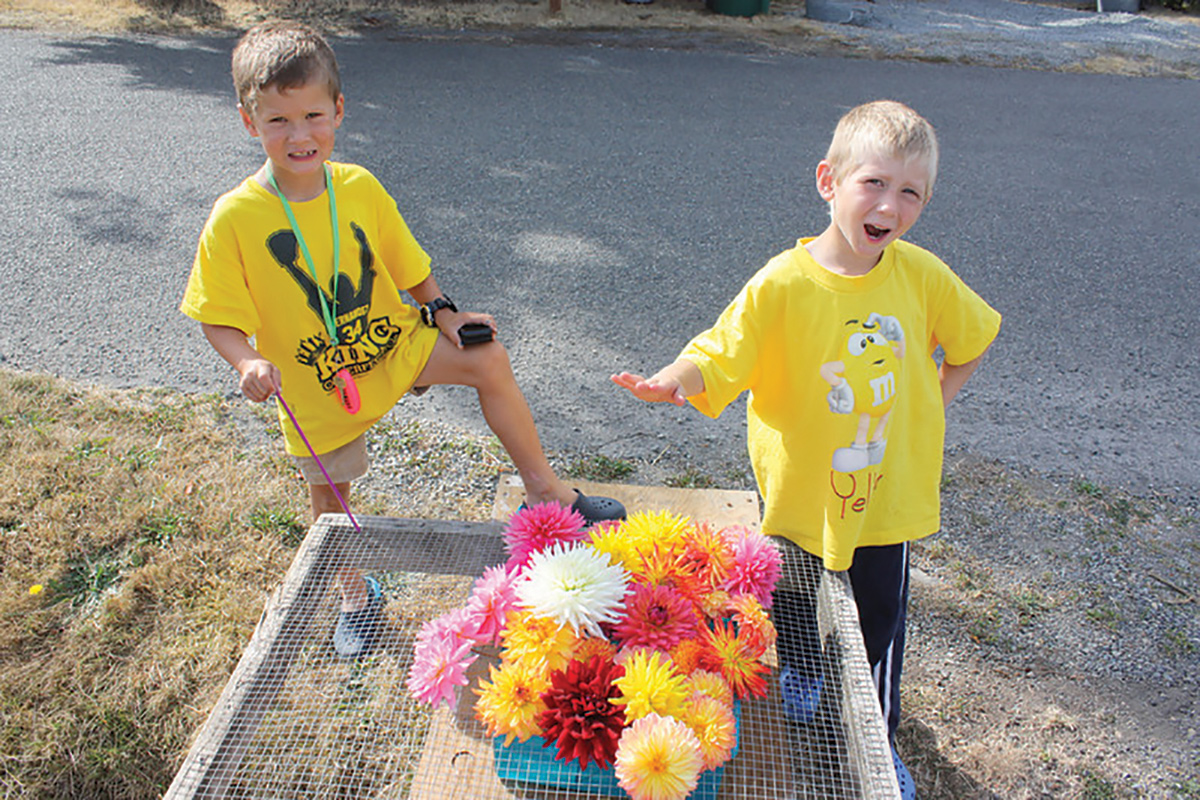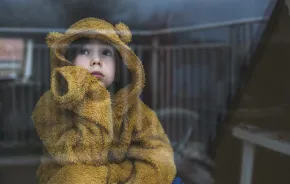
Today’s mini-entrepreneurs are taking roadside commerce in new directions. Picture a pop-up thrift store run by the daughters of two business owners, or a dahlia stand that pays a family’s way to Great Wolf Lodge.
Whether they set up shop in the front yard or peddle services in the neighborhood, children earn their own money in ways we probably never imagined as kids: tutoring piano, baking dog biscuits, making rubber-band jewelry.
As usual, parents are following the passions of their children this summer, and the modern world offers a wealth of new opportunities. We talked with a handful of young entrepreneurs (and their parents) to uncover how they began their lives in commerce. In the process, we also checked in with a few experts in the field of children and money, who added their voices to this primer on getting business done the kid way.
Catching and sparking ideas
Kids often enter the marketplace naturally. Neighbors asked Cyanna Sjerven of Ballard to walk their dog, but her younger brother Peter was more interested in the job. The thrill of earning his own money motivated Peter, now 10, to make fliers to find more dogs to walk — which he did, until he’d saved up $400 to buy his first computer.

Ella Singer’s passion was ignited by the cash she earned selling her toys at the annual Greenwood Garage Sale. When her mom suggested she set up a stand to sell her loom band jewelry and trinkets because her school friends were already ordering products from her, Ella, 9 and a half, decided to earn spending money by selling her designs every Monday in front of her family’s Phinney Ridge home.
“I started ‘working’ when I was 5 years old, when I first made a pop-up thrift store in my driveway. My preschool friend Grace and I always wanted to be in business together. Our moms are great friends and both run their own businesses, so we probably got the idea from them,” says Maya Sulkin, the now 12-year-old daughter of ParentMap publisher Alayne Sulkin. “Grace and I had clothes we did not like and thought we should just sell them to other kids. We sold mini-jean skirts, lemonade, headbands and T-shirts.”
Thirteen-year-old Gavin Taylor of Danville, Calif., has a great time tutoring a younger neighbor boy in piano. “I’ve always loved working with kids. Parents say I am supergood with kids. I like piano, and I like to teach it,” says Gavin, who started giving lessons at age 12.
Turning passions into products
KidBiz, a unique program in Buffalo, N.Y., teaches entrepreneurship to third- through sixth-graders. Andrea L. Lizak, associate director at SUNY Buffalo State’s Small Business Development Center, helped start the program in 1996. After teaching a range of ages, she decided students at those grade levels were the perfect candidates for beginner business lessons. “They are outgoing, they are talkative, and they are learning about money and customer service at this point,” Lizak says.
Participants come to class with their marketplace idea ready, from dolls to Buffalo-shaped cookies. The kids learn how much to charge, how to market their items (e.g., offer a free dog biscuit to every dog) and how to work with money. Then these small business owners set up shop on three different dates at the Elmwood-Bidwell Farmers Market. “Starting young gives them confidence,” Lizak explains. “The biggest thing kids [need] to realize is they have to be having fun. It’s all about having fun.”

Sometimes passion for business is a family trait that kids grow into. “I think kids love to sell things, since it is one of the first things they experience in life: We all go to stores and purchase items,” says Monica Armstrong of Broadview, whose two sons, 8-year-old Sam and 7-year-old Drew, set up stores at an early age by procuring items from around the house (that didn’t belong to them — a refrain echoed by other parents).
This entrepreneurial spirit is in her family’s blood line, Armstrong adds. “Many of my dad’s family members own and operate their own businesses. I myself grew up in a toy store that my parents created and a billiard store that my dad still runs . . . this family-owned business has only begun to leave an imprint on [my sons’] business minds.”
During dahlia season, Sam and Drew sell flowers at a stand they set up at the end of their driveway. During their first summer in business, the boys earned more than $250, and last year, they earned enough to take the whole family to Great Wolf Lodge.
The intangible benefits
 Starting a summer business is one way to help children grasp the idea that money comes from work, not from mom’s and dad’s pockets, says Rachel Cruze, who cowrote Smart Money Smart Kids: Raising the Next Generation to Win with Money with her own father.
Starting a summer business is one way to help children grasp the idea that money comes from work, not from mom’s and dad’s pockets, says Rachel Cruze, who cowrote Smart Money Smart Kids: Raising the Next Generation to Win with Money with her own father.
Young entrepreneurs like their first taste of being grown-up, too. “It makes me feel more mature. I’m doing it myself, and it makes me feel like I’m doing something with my life,” says piano tutor Gavin.
But it’s really the joy of it that keeps them selling on summer days, says Julie Pond, whose three kids, ages 6–11, run an origami stand (pictured at right) in Seattle’s Meadowbrook neighborhood. “We like seeing the customers happy and talking with people. It’s fun to be outside and in the sun, and everyone likes our new creations.”











